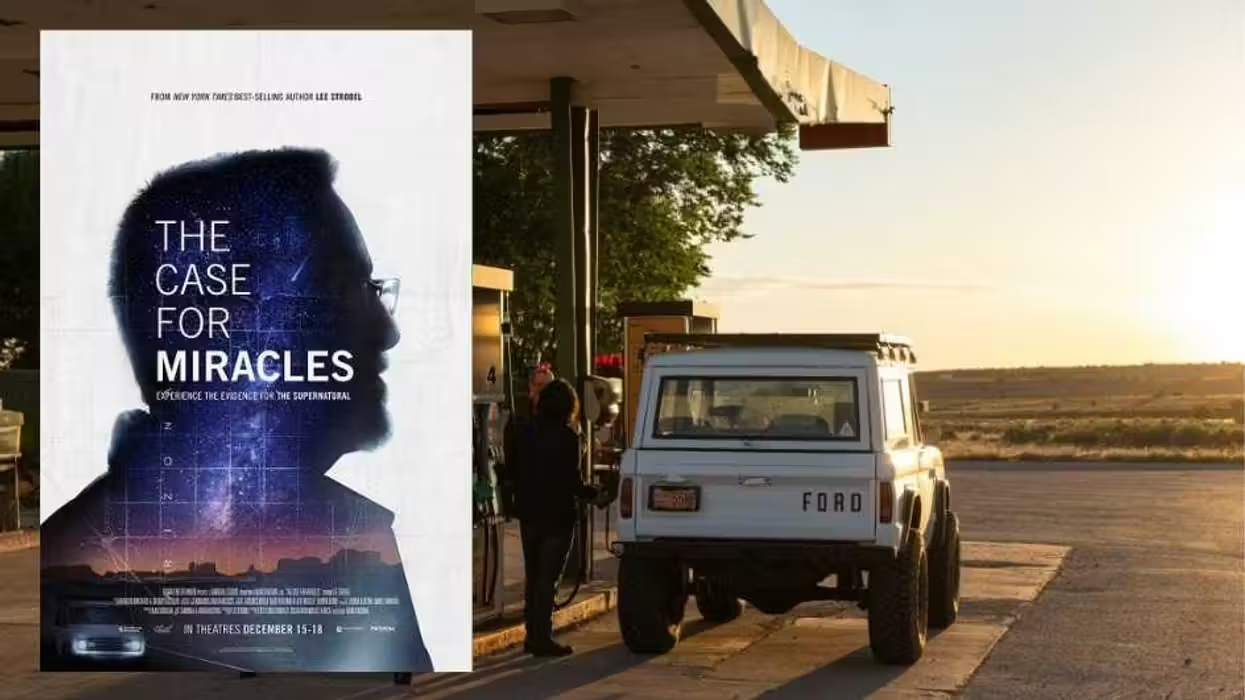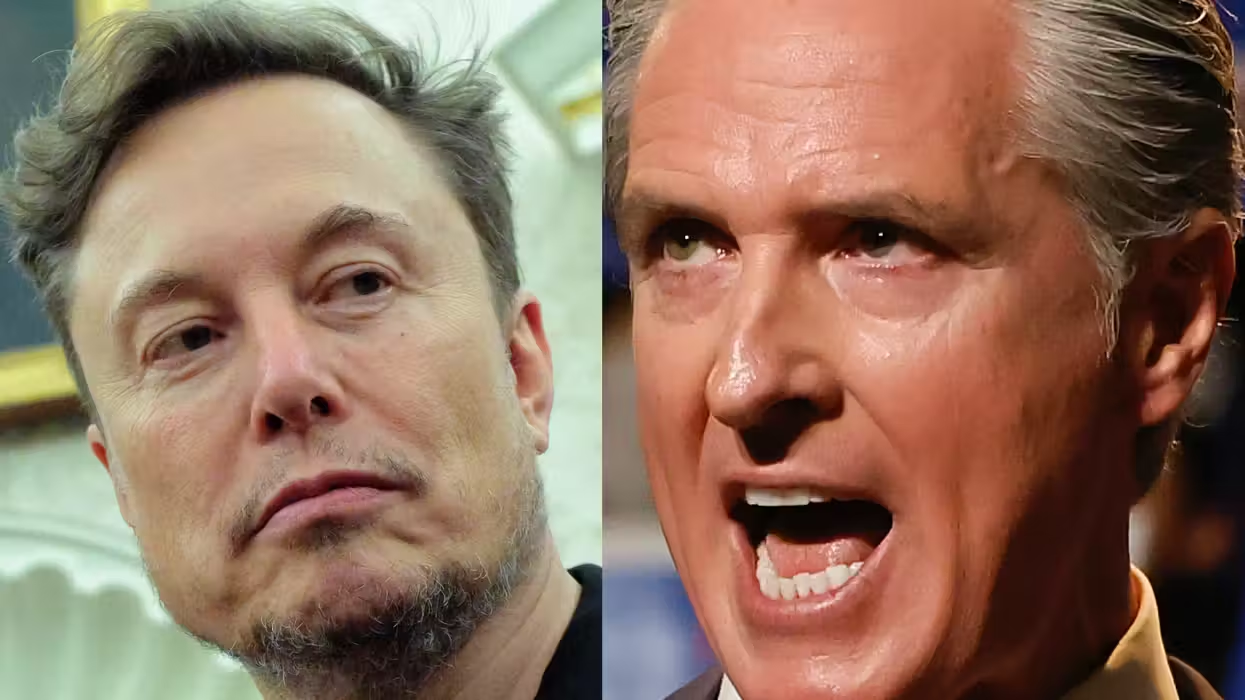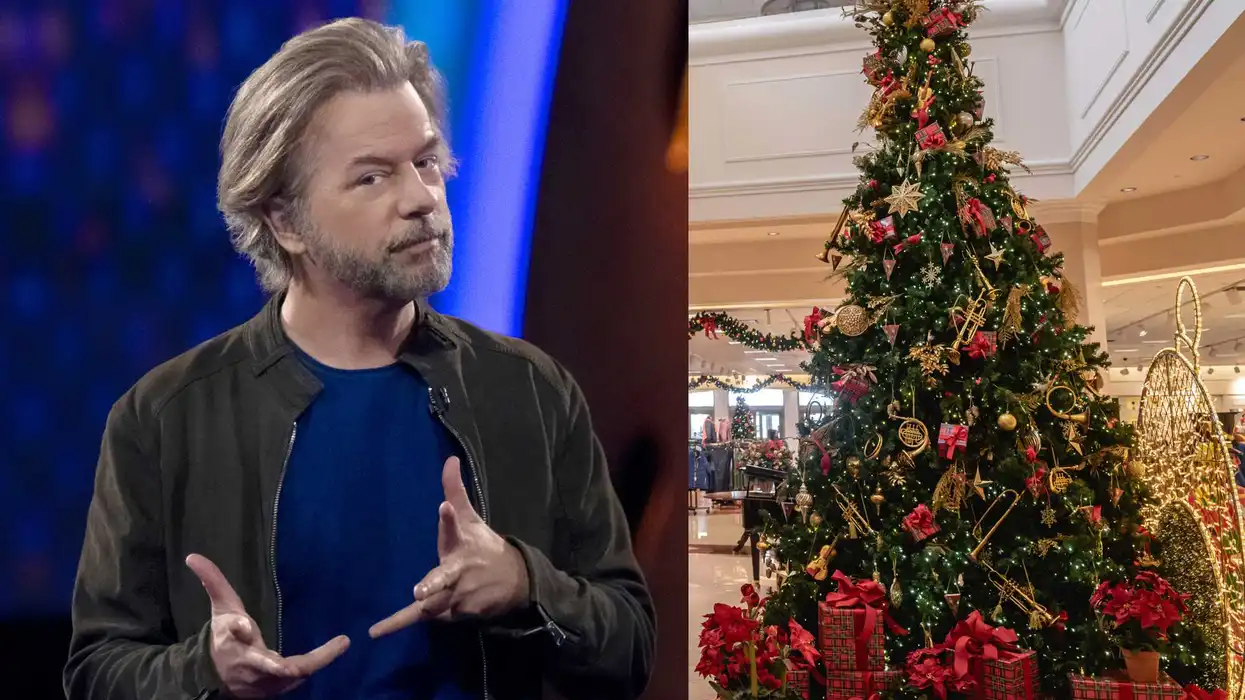
© 2025 Blaze Media LLC. All rights reserved.
When William F. Buckley Jr. published “God & Man at Yale” in 1951, he claimed that liberalism had infected American academia and that the conservative’s “firm belief in Christianity” and “profound respect for American institutions and traditions” had become the objects of mockery and scorn.
Liberals view the belief that “an active faith in God and a rigid adherence to Christian principles are the most powerful influences towards a good life” or that “free enterprise and limited government [has] served this country well” as nostalgic and “uneducated,” according to Buckley.
Sixty-one years later, some critics say what Buckley observed in academia hasn’t changed for the better. In fact, some believe the situation has worsened far more than even Buckley had foreseen.
Are there any conservative alternatives? That is, do those who have a “firm belief in God,” a respect for free enterprise, and no desire to emulate their peers at these “prestigious” American universities have any options left?
They do.
Young America’s Foundation (YAF), the principal youth activism wing of the conservative movement, has released its 2012 list of the most conservative colleges in the U.S.
What were the criteria to be eligible for the “most conservative” list?
YAF explains:
The “Top Conservative College” list features institutions that proclaim, through their mission and programs, a dedication to discovering, maintaining, and strengthening the conservative values of their students.They offer coursework and scholarship in conservative thought and emphasize principles including smaller government, strong national defense, free enterprise, and traditional values. Furthermore, they avoid trends in academe by continuing to study Western Civilization instead of straying toward the study of Marxism, feminism, sexuality, postmodernism, and other distractions that do not give students a complete understanding of our country, our culture, and its founding principles.
However, it's important to note that "this is not an exhaustive list of conservative institutions and should not be taken as such."
Furthermore, although YAF highly recommends service academies such as West Point and Annapolis, these schools do not appear on the list because they are not liberal arts colleges, but rather military colleges that follow a training model for future officers.
Conservative colleges “are becoming more popular as young people begin to find less and less value in a liberally biased education,” Ron Meyer, YAF’s program officer writes. “As the job market worsens, students are asking: ‘What am I really getting for the tens (or hundreds) of thousands of dollars I spend on my education?’”
“The esoteric, purely academic focus of most liberal colleges leaves students with little practical knowledge for the fields they will enter. Conservative colleges understand and embrace the free market, giving the students the tools they need to become entrepreneurs,” he adds.
These are the most conservative colleges in the U.S. [all block quotes via YAF]:
Christendom College:
Christendom College in the Shenandoah Valley of Virginia is a Catholic college with more than 400 undergraduates. Six majors and a master’s degree in theological studies are offered. All undergraduate programs begin with a core curriculum that includes study of Catholic doctrine, as well as philosophy, mathematics, and science.The college was founded in 1977 by a group of Catholics concerned with the direction of higher education, especially within the Catholic church.
“Only an education which integrates the truths of the Catholic faith throughout the curriculum is a fully Catholic education,” stated the founders.
Led by Dr. Warren H. Carroll, the school's founders also envisioned how, “the only rightful purpose of education is to know the truth and to live by it. The purpose of Catholic education is therefore to learn and to live by the truth revealed by Our Lord and Savior Jesus Christ…”
The original vision of Christendom lives today through the institution’s devotion to Catholic theology and way of life. The core curriculum reinforces a Catholic worldview and teaches students to “distinguish truth from error or distortion, and then to communicate truth accurately, effectively, and convincingly to others.”
College of the Ozarks:
The College of the Ozarks is a unique Christian Work College…dubbed “Hard Work U.” by The Wall Street Journal, [because] it has a special work-study program where students work in lieu of paying tuition.…the College of the Ozarks has an extensive character education program. As soon as students arrive for freshman orientation, they begin character education programs and abide by a dress code and an honor code.
A core liberal arts curriculum is required of all students, and an optional character-based curriculum is available. The general education curriculum is “purposefully complemented by an emphasis on the development of vital competencies,” such as writing, critical thinking, and interdisciplinary connections.
Colorado Christian University:
Colorado Christian University (CCU), the latest addition to YAF’s list, offers an ideal conservative experience. Not only has the school recently sued the federal government over the mandates in ObamaCare, they possess some of the best conservative facilities in the country.CCU’s Centennial Institute offer numerous events and seminars throughout the year, featuring speakers including Governor Sarah Palin former Godfather’s Pizza CEO Herman Cain, Foundation Vice President Kate Obenshain, and many others. CCU’s curriculum requires a course in western civilization and offers core tracks in theology and American History. These courses and others follow CCU’s unique Strategic Objectives statement, which includes a dedication to the “Bible” and the “original intent of the Constitution.”
Franciscan University:
As a Catholic institution, Franciscan lives by a conservative intellectual and social philosophy based on the strong liberal arts tradition and the teachings of the Catholic church.Many of Franciscan’s programs are devoted to obtaining a deeper knowledge of the history, philosophy, and culture that shaped Western Civilization.
A factor that distinguishes Franciscan is the student body’s devotion to activism on traditional religious values. Public policy, civic participation, and conservative activism groups remain popular among students.
Grove City College:
As a liberal arts institution, Grove City College’s web site states: “Rejecting relativism and secularism, [Grove City College] fosters intellectual, moral, spiritual, and social development consistent with a commitment to Christian truth, morals, and freedom.”The atmosphere created at Grove City College through its policies and programs encourages “the spiritual, moral, intellectual, and character development” of its students and staff.
Grove City has a commitment to conservative scholarship in various fields. For example, Dr. Paul Kengor (political science) has written several best-selling books and is an expert in the American presidency. He is also executive director of the College’s think tank, The Center for Vision & Values. Dr. Tracy Miller (economics) has published articles examining international and agricultural economics and economic development. Many of Austrian economist Ludwig von Mises’ papers are housed and researched at the College. In addition, Grove City boasts a strong department of religion and a major in entrepreneurship. Engineering (ABET-accredited programs in mechanical and electrical engineering), education and business round out the most popular majors.
Harding University:
Harding University in Searcy, Arkansas is a robust Christian college with 6,500 students. Ninety majors, thirteen pre-professional programs, and twelve graduate and professional degrees encompass the academic offerings. As the largest private university in Arkansas, Harding offers a well-rounded intellectual experience in a Biblical context. The Honors College also offers in-depth and supplementary study for accelerated students.Majors from all programs are required to fulfill liberal arts requirements that include seven categories: spiritual and moral values, communications and critical thinking, the individual and social environment, the natural world, the creative spirit, the historical perspective, and global literacy. A moral code signed by all students creates an atmosphere where everyone is held to high standards.
Hillsdale College:
Hillsdale College in Hillsdale, Michigan is a liberal arts college with 1,300 students. Offering 34 traditional majors, 8 interdisciplinary majors, and 9 pre-professional programs, its core curriculum exemplifies the tradition of a classic liberal arts program. All students, regardless of major, are required to take courses in humanities, natural science, and social science during their first two years.Independence is an important theme at Hillsdale. Upon its founding in 1844, it was the nation’s first college to prohibit discrimination based on race, sex, or religion in its charter. Ever since, the institution has not taken a penny from the federal government. When some students received federal loans in the 1970s, Hillsdale quickly reacted by maintaining independence and rejecting government quotas.
Hillsdale provides students with a well-rounded education that focuses on liberty. Students learn what liberty means and the moral conditions of its preservation. They develop the skills to be productive citizens and the character to be good ones. The mission statement sums up the college well.
It reads: “The College considers itself a trustee of modern man’s intellectual and spiritual inheritance from the Judeo-Christian faith and Greco-Roman culture, a heritage finding its clearest expression in the American experiment of self-government under law.”
See the Rest of YAF’s List Here.
(H/T: Peter Jesserer Smith)
Want to leave a tip?
We answer to you. Help keep our content free of advertisers and big tech censorship by leaving a tip today.
Want to join the conversation?
Already a subscriber?
more stories
Sign up for the Blaze newsletter
By signing up, you agree to our Privacy Policy and Terms of Use, and agree to receive content that may sometimes include advertisements. You may opt out at any time.
Related Content
© 2025 Blaze Media LLC. All rights reserved.
Get the stories that matter most delivered directly to your inbox.
By signing up, you agree to our Privacy Policy and Terms of Use, and agree to receive content that may sometimes include advertisements. You may opt out at any time.







